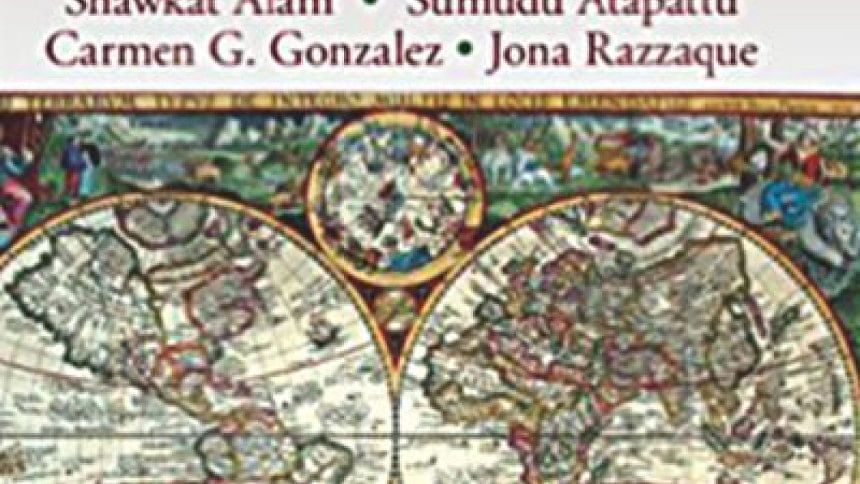Environmental law in a bifurcated world

International Environmental Law and the Global South is a brilliant compendium of writings on international environmental law from a southern perspective. The volume is edited by four prolific authors of international environmental law, namely Shawkat Alam, Sumudu Atapattu, Carmen G. Gonzalez and Jona Razzaque. The book contains the scholarly contributions of a number of renowned researchers who have been experts in various areas of international environmental law.
In his foreword, Judge Christopher Weeramantry, former vice-president of the International Court of Justice (ICJ), recollected an argument he heard as a Judge in one of the cases relating to nuclear weapons put forward by a counsel appearing for antinuclear powers before the ICJ. The counsel argued that as we would condemn the prehistoric men in the strongest terms if they had damaged the environment in a manner that affects us today, likewise, the posterity will condemn us if we damage the environment in a manner that affects them tomorrow.
In the first part of the volume, Professor M Rafiqul Islam of Macquarie Law School has beautifully encapsulated the historical anecdotes and milestones of the journey of the North-South divide in the realms of international law and international relations. Professor Ruth Gordon of Villanova University in another chapter entitled 'Unsustainable development' argued that the development model of the North cannot be replicated by the South and the wasteful lifestyle of the people in the Northern countries is as unjustifiable as the destitution of the people living in many Southern countries. In the second part, Professor Louis J. Kotze of North West University, South Africa highlighted that no universally accepted and legally binding international instrument explicitly provides for an environmental right till date, nor any such right has been accepted as customary international law.
In Part III, Professor Shawkat Alam of Macquarie Law School contended that the Northern countries apply non-tariff barriers to trade, e.g., sanitary and phytosanitary (SPS) measures that result in further broadening of the existing economic gap between the North and the South. Consequently, although these measures are adopted in the name of conservation of environment and biodiversity, they have been proved to be counterproductive. Part IV talks about environmental justice and vulnerable groups. Professor Carmen G. Gonzalez of Seattle University School of Law argued that the root cause of the problem is inequitable distribution of wealth between the North and the South which has been described as 'distributive injustice.' The author also argued that the controversial GM crops pose significant threat to environment and may destroy the indigenous varieties of crops from many Southern countries in the long run.
Part V offers the Southern countries a number of pragmatic and sustainable solutions to attain their rightful positions in the world order. It includes adopting policy measures, availing legal and judicial remedies and finally bringing about a change in the existing economic and political status quo through effective negotiation. Some success has been achieved in the recent past as a result of climate negotiation and the Northern countries have pledged to contribute money to help the Southern countries adapt with climate chaos. However, the editors warn the South that winning such concessions from the North may seem to be positive developments, but these can entail upsetting repercussions for the Southern countries in the future, because the North may use these concessions as instruments to control the South by withholding funds or placing conditions on their use.
All the contributions in the present volume advocate for the South and the position of North is missing. Hence, readers would have been greatly benefited if the volume had contained at least a chapter, if not a part, that speaks for the North and rebuts the allegations that the South has been alleging against it for a long time now.
The reviewer is a PhD Candidate at Macquarie Law School, Australia.

 For all latest news, follow The Daily Star's Google News channel.
For all latest news, follow The Daily Star's Google News channel. 



Comments